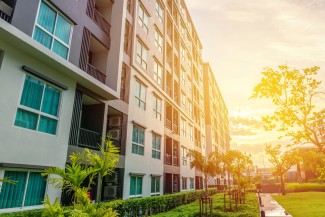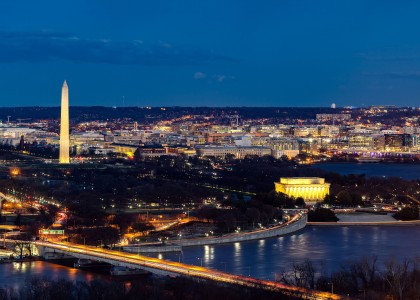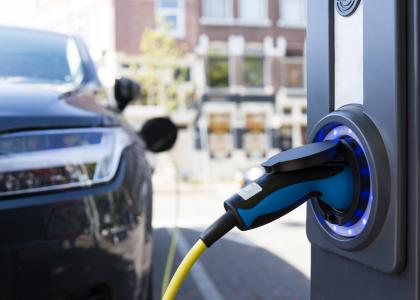Washington, DC—The American Council for an Energy-Efficient Economy (ACEEE) will lead a national effort to work with states and localities across the country to implement updated building energy codes that will reduce energy costs for households and businesses while cutting climate pollution. With $9.6 million in funding over five years from the Department of Energy announced today, ACEEE and partner organizations will establish the National Energy Codes Collaborative, a nationwide capacity building network empowering states and jurisdictions to ensure the next generation of new homes and buildings are built to be energy efficient.
The collaborative is a partnership of ACEEE, clean energy implementation firm Energy Solutions, the National Association of State Energy Officials (NASEO), the Urban Sustainability Directors Network (USDN), and ASHRAE, an organization advancing sustainable HVAC&R solutions. Four initial state partners are the Colorado Energy Office; Louisiana State Energy Office; Michigan Department of Environment, Great Lakes, and Energy; and New Jersey Board of Public Utilities Division of Clean Energy. The collaborative aims to expand to additional states.
“States and cities across the country have an opportunity to reduce energy use, cut climate pollution, and lower utility bills for families and businesses by tapping this expert assistance to improve building energy codes,” said Michael Waite, manager in ACEEE’s buildings program and project lead for the collaborative. “The National Energy Codes Collaborative will forge new connections across diverse communities and leverage a breadth of expertise to empower states to build up the capacity and workforce needed to reduce energy costs for families and businesses for generations to come.”
Building energy codes set requirements for building construction, such as for insulation, windows, or heating systems. Stronger codes reduce energy use in new buildings and thus cut utility costs and carbon emissions from burning fuels in the buildings and from power plants that provide the buildings with electricity. The codes are adopted and implemented by states, or in some cases by counties or cities.
The collaborative will develop energy code implementation roadmaps, individualized to each state to guide the state’s building code development and implementation, and ensure benefits are shared across all communities. The collaborative will also establish the Energy Code Implementation Fellows Program to embed experienced building code practitioners in state and local agencies to provide technical assistance in code adoption, workforce development, implementation and compliance, and equity and environmental justice.
To ensure benefits are shared by all, the collaborative’s in-state teams will work with local community and labor groups to ensure each state’s roadmap centers diversity, equity, inclusion, and accessibility, while investing in the local workforce and environmental justice communities.
Updating building codes in the target states will reduce energy costs by an estimated $1.8 billion over five years. This will be accomplished through innovative approaches to capacity building, technical assistance, locally focused strategy development, and nationwide peer-to-peer collaboration. The effort will cut an estimated 9.5 million metric tons of greenhouse gas emissions over five years, equivalent to removing 2.1 million gasoline-powered cars from the roads for one year. In the decades ahead, the improved codes will even more dramatically reduce costs and climate pollution.


